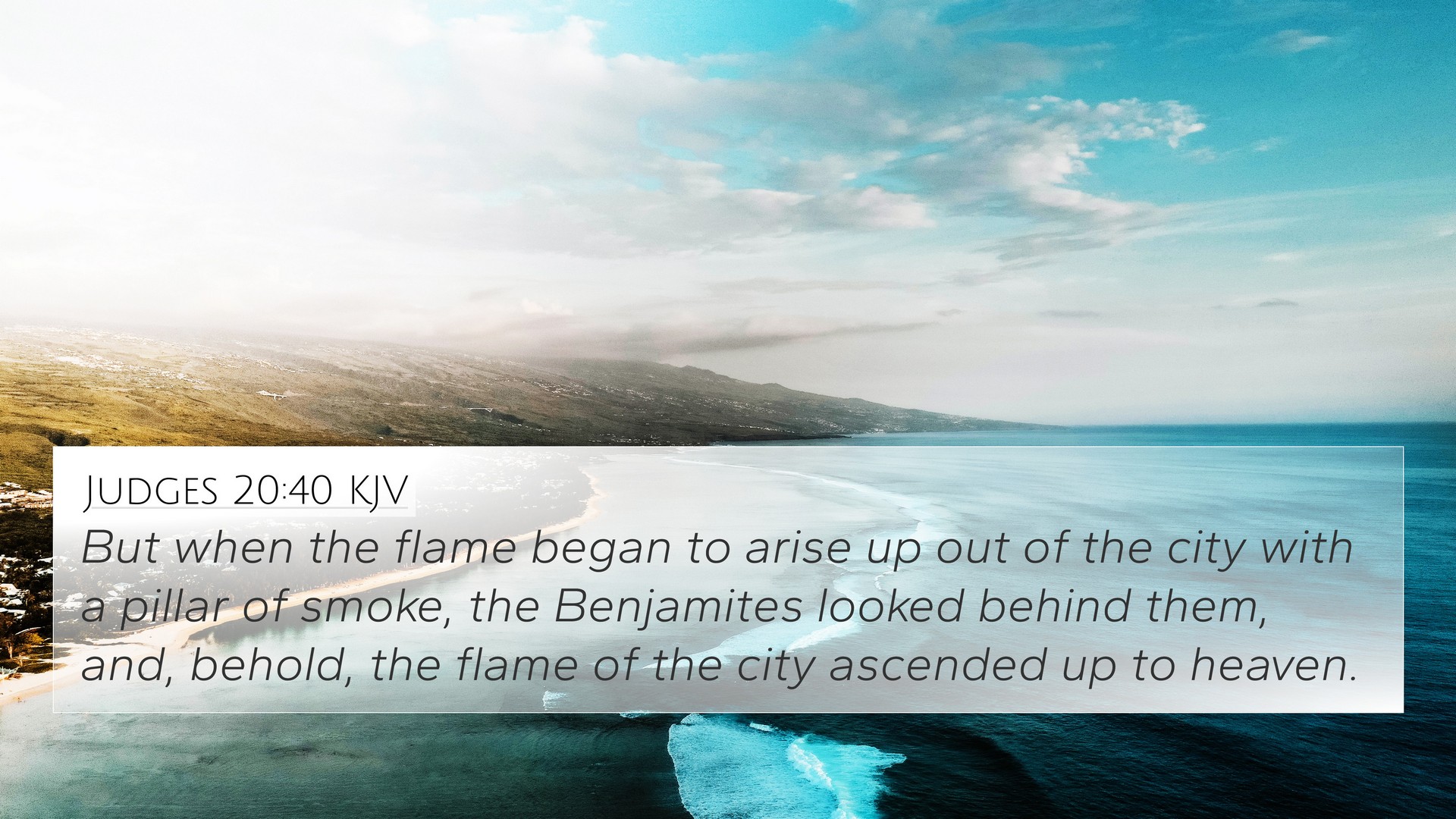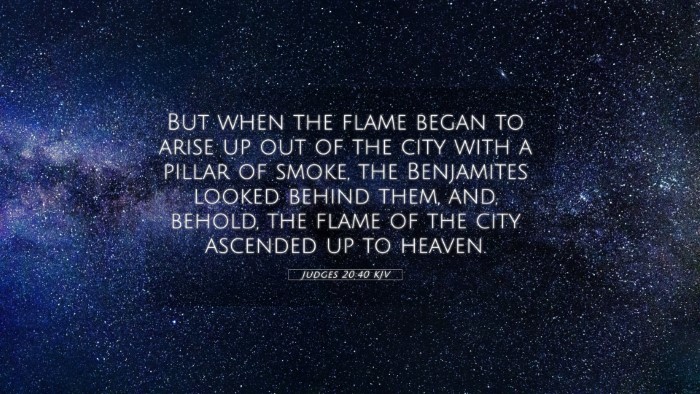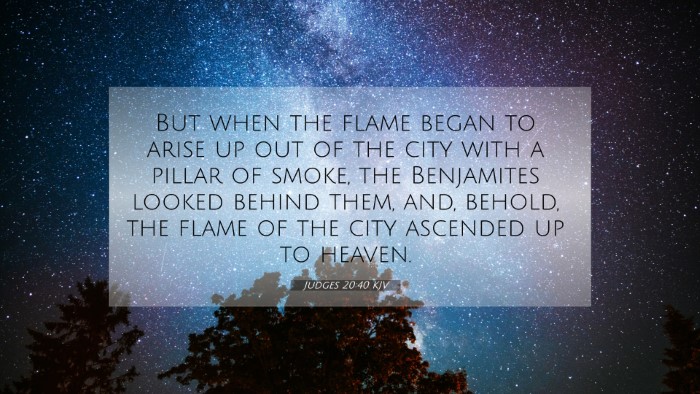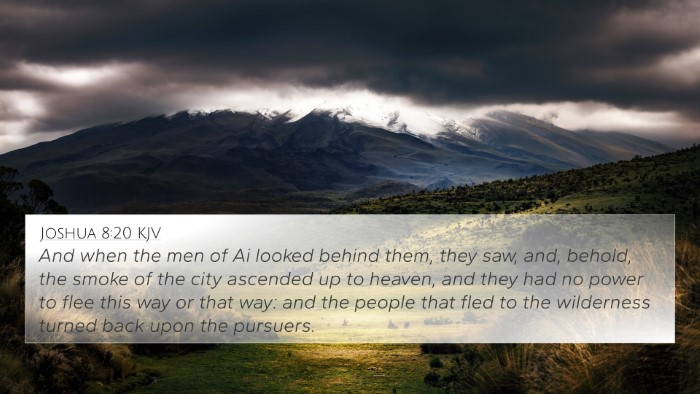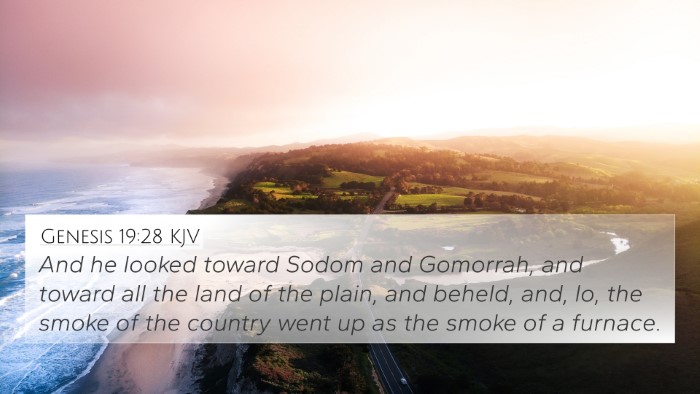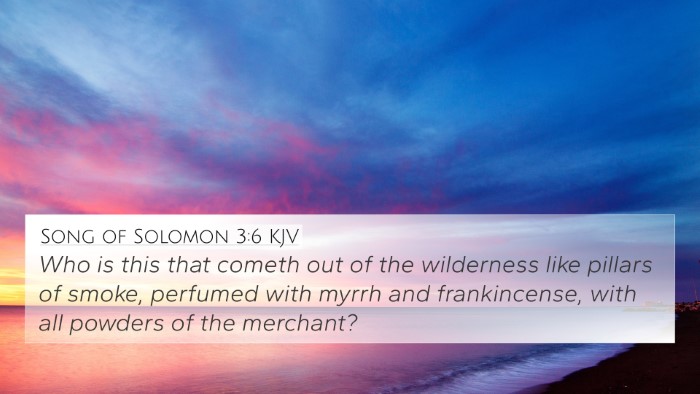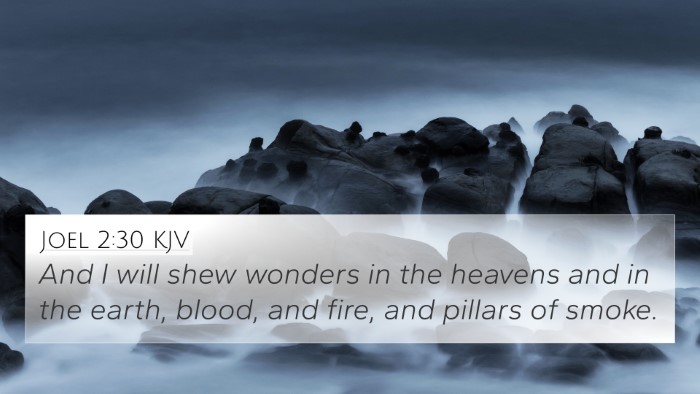Understanding Judges 20:40
Judges 20:40 reads: "But when the beam began to go up out of the city, the Benjamites looked behind them; and, behold, the flame of the city ascended up to heaven." This verse is situated in a narrative depicting the conflict between the tribe of Benjamin and the other tribes of Israel, highlighting themes of divine judgment and the consequences of sin.
Commentary Insights
This verse marks a pivotal moment in the battle against the Benjamites. The 'beam' references the signal set by the Israelites as they engaged in battle—a necessary component in their plan to overtake the city of Gibeah.
According to Matthew Henry's Commentary, the rising flame symbolizes the divine wrath and judgment against the wickedness that had taken root in Benjamin, particularly owing to their defense of the heinous act committed against the Levite's concubine. The fact that the city is burned up signifies the seriousness of sin and God's eventual recompense for it. Henry emphasizes that God allows calamity to fall upon those who persist in their sinful ways.
Albert Barnes notes that the Benjamites, watching the smoke rise from their city, are confronted with a sobering realization—the devastation wrought by their own actions and the resulting consequences that befall them. The fire ascending symbolizes both destruction and a warning of God's judgment that should compel one to introspection and repentance.
Adam Clarke elaborates that this moment serves as a divine cautionary tale. The use of fire in the passage not only represents destruction but also stands as a metaphor for God's purifying element. Clarke underscores that the Benjamites’ failure to heed various warnings throughout the narrative leads to their ultimate demise.
Bible Cross-References
Judges 20:40 relates to several biblical passages that reflect similar themes of judgment, consequences of sin, and divine intervention. Here are notable cross-references:
- Genesis 19:24-25 - The destruction of Sodom and Gomorrah illustrates God's judgment on wickedness.
- Romans 6:23 - The wages of sin is death, a theme echoed in the judgment upon the Benjamites.
- 1 Corinthians 10:11 - These things happened to them as examples for us; they were written for our instruction.
- Isaiah 3:11 - Woe to the wicked! It shall be ill with him, for what his hands have dealt out shall be done to him.
- Revelation 20:15 - The final judgment indicates that those whose names are not found in the book of life are cast into the lake of fire.
- Proverbs 11:21 - Though hand join in hand, the wicked shall not be unpunished, reinforcing the idea of inevitable consequences.
- Galatians 6:7 - Do not be deceived: God is not mocked, for whatever one sows, that will he also reap.
Thematic Connections
The story encapsulated in Judges 20, particularly verse 40, showcases thematic connections that can be explored through cross-referencing biblical texts:
- Divine Judgment: The narrative serves as a reminder of the consequences that arise from collective sin, echoing stories from both Old and New Testaments.
- Restoration: The aftermath of judgment is often restoration. The book of Judges itself leads to a need for a righteous leader, ultimately culminating in the establishment of the monarchy.
- Call to Repentance: Many of the lessons drawn from calamities point back to the need for individual and community repentance, paralleling messages found in the prophetic books.
Tools for Bible Cross-Referencing
To further explore connections between Bible verses, various tools can assist including:
- Bible Concordance: A resource for locating words and phrases to identify related scripture.
- Bible Cross-Reference Guide: Designed to aid users in finding interconnected scriptures effectively.
- Cross-Reference Bible Study: Methods to study scripture with an eye on thematic unity across biblical texts.
Conclusion
Judges 20:40 serves as a monumental verse capturing the essence of divine judgment and the stark reality of sin's consequences. Through the insights gained from respected commentaries and by observing thematic Bible verse connections, we gain a richer understanding of the spiritual lessons woven throughout Scripture.
